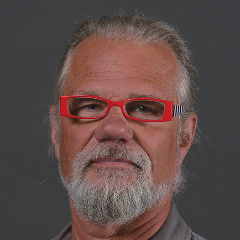Trauma-Informed Care (TIC) Trauma Basics
This course was created and provided by the Virtual Center of Excellence (VCE), a former project of the Detroit Wayne Integrated Health Network (DWIHN). Content and format will be updated in the near future to address current accessibility standards. If you are unable to access the content in this section, please contact the imp support team for assistance.
This course will increase understanding of the basic tenets of trauma in adults and children.
Defining Trauma in Children and Adults
This course has been designed for direct care providers to increase their understanding of what trauma is: an overwhelming event or internalization of an experience that has stayed with and effects their clients.
The Difference of Trauma on Children vs. Adults
This course provides insight into the different effects trauma can have on an adult versus a child. During the developmental phases of a child's life, significant trauma (physical, or emotional) may present potential physical and behavioral problems later in life.
Communicating with Clients Afflicted by Trauma
This course was designed to help those direct care workers understand how trauma affects their clients and how to clearly communicate this throughout this practice. It is recommended that behavioral health professionals also take the other trauma-related courses available through ImprovingMIPractices.
Experiencing trauma is isolating and sometimes it can help to find someone that has been through a similar circumstance, even if they're a fictional character.
- Understanding the definition of Trauma and the impact on a child and adult.
- Answer the questions, what is trauma? What effect does this have on children.
- Develop a better understanding of Trauma

Dr. Jim Henry
Project Director and Professor of Social Work
Dr. Jim Henry: CTAC co-founder and project director has a professional history that includes over 17 years as a child welfare/protective services worker, and over 10 years developing and providing trauma-informed instruction in the Social Work curriculum at Western Michigan University and director of CTAC. Dr. Henry has received several awards including the 2003 Michigan Child Advocate of the Year. In addition to his work on multiple national committees and grant projects to address child maltreatment and the impact of trauma he has also published several articles in professional journals and presents at national and international conferences on child maltreatment including physical abuse, domestic violence, and child sexual abuse. He has trained over 30,000 professionals, caregivers, and community members on child maltreatment and trauma-informed practices and recently developed a secondary trauma training focusing on understanding the impact of secondary trauma, grief, and building resiliency.
Course Progress
Course Content
This content is unavailable
Enroll in the course to access
What People Are Saying
I enjoyed the level of engagement and the pace at which information was presented. I was able to gauge my understanding in real time through the exercises within the module."

